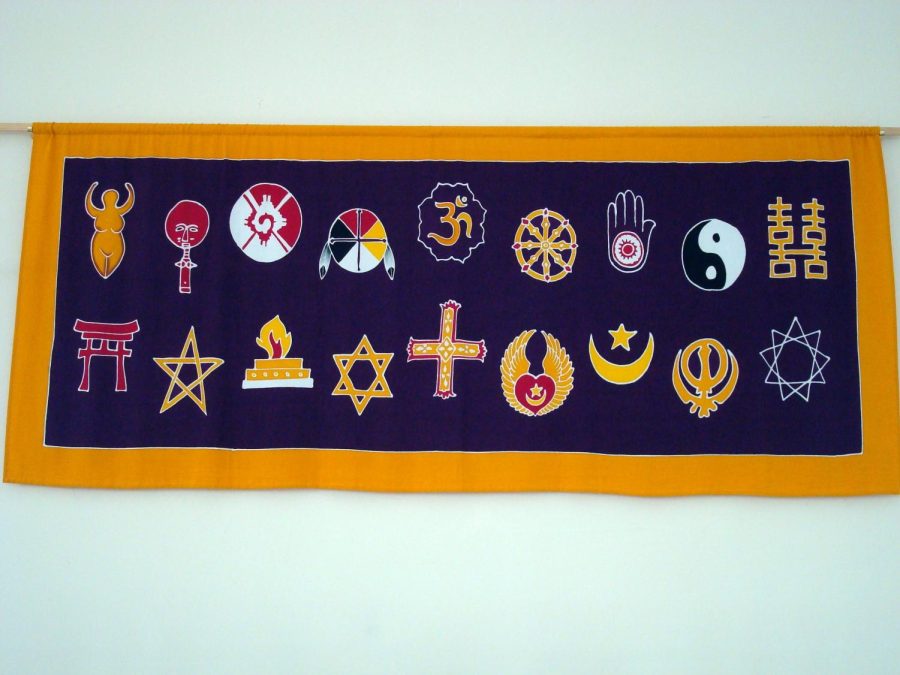This summer, headlines blared with shocking news: Americans’ belief in God had hit a “new low!” Surely, the atheist hordes will overrun God-fearing Christians any day now.
If you had actually clicked on the article instead of just reading the headline (a rarity these days), you would’ve found out that the “new low” was: 81%. According to polling company Gallup, four out of five Americans believe in God.
Nonetheless, it is true that there has been a notable decline in Americans’ belief in God, and this is significant. I think many Americans have a sense that our country is becoming less religious. While that’s definitely true, it’s also a bit more complicated than that.
To get a fuller picture of Americans’ religious views, it’s important to go beyond this one metric. After all, not everyone who believes in God considers themselves to be religious. Plus, belief is only one of the “three B’s” of religion, according to Evan Stewart, a sociologist at the University of Massachusetts-Boston. The other two are behavior — people’s religious practices — and belonging — their sense of being part of a religious group.
“All three measures, our common survey measures of religious engagement, have been declining, depending on how you ask the measure and depending on the survey,” Stewart said.
We can see this decline illustrated in this graph from Pew Research Center.
“In the 1970s, if you asked, ‘what religious group do you belong to?’ Most Americans would give you some kind of answer. And the ones who would say, ‘Well, I’m none of the above’ on the General Social Survey, that was only about 7% of the population. Today, it’s up to 25%, or even 30%,” Stewart said.
“Religious non-affiliation has really gone up. There’s also been declines in religious belief,” he continued, noting that belief has seen a significant drop in recent years, with 14% saying they didn’t believe in God in 2014, versus 19% in 2022.
Behavior, the third B, is also on the decline.
“There has also been declining church membership and declining rates of church attendance in the United States, although that’s a little tougher to measure because we know that people aren’t always forthcoming with survey researchers about whether or not they actually went to church,” Stewart said.
Researchers like Stewart hypothesize that a substantial number of people tell researchers they go to church when they actually don’t. This could mean that the decline is even greater than the data show.
Religious belief, behavior and belonging are all on the decline. That is undeniable. But, while these metrics are important and meaningful, they don’t always tell the full story.
Jacqui Frost is a sociologist at Purdue University. She and Stewart both went to graduate school at the University of Minnesota and have co-published papers together.
“The consensus in sociology is that we’re sort of seeing a bottoming out of the middle, but we’re seeing a lot on the extreme. So people are leaving religion, yes. But there are a contingent of people that are, sort of, becoming more religious,” Frost said. “We’re seeing much more polarization, rather than just straight decline.”
While there is more nuance to this picture than outright decline, Penny Edgell, a sociologist at the University, said that decline is still the main story.
“It's important not to downplay that or to indicate that people are ‘really more religious’ than the numbers indicate,” she said in an email to the Minnesota Daily.
Stewart highlighted that the three B’s don’t encapsulate everyone’s relationship to faith.
“There are lots of people who are deeply committed to their religion who never go to church,” he said. In addition, for example, some may fall into the “none of the above” category but also identify as born again.
We can see these types of trends in the overall data. The number of people who Pew found to be unaffiliated, 29%, is significantly greater than the number who told Gallup they didn’t believe in God — 19%.
According to Frost, the “nothing in particular” group is both diverse and understudied.
“Some of them are still Christian, but just don’t attend church. Some of them have moved into New Age-type spiritualities,” she said.
Lately, it’s become more acceptable to pick and choose aspects of different traditions that speak to you.
“So, we have people who are both Jewish and Buddhist,” she said. “People who are piecing together different beliefs that they grab onto but from different traditions.”
Frost also said while there has been an increase in non-Christian religions, that’s mainly because of immigration — not people changing their beliefs.
Atheists, according to Pew, made up 4% of the population in 2021, double the number in 2011. So, what are the implications of this shift from traditional religion to nothing in particular?
Many worry a decline in religion will make Americans’ lives worse. According to Gallup, there’s “a long line of studies” showing religious people typically do better on a variety of measures of well-being.
But Frost urged caution, both about measures of well-being and other studies that have found religious people to be more civically involved. After all, the category of not religious is heterogeneous. And someone’s life right after they leave religion, she said, often looks very different than it does five years down the line.
“It depends on the type of non-religious person; it depends on a lot of other factors,” she said.
Stewart recently co-authored a paper, which found the association between religious practice and political engagement was about the same as the association between spiritual practice and political engagement, he said.
Some of Frost’s research focuses on secular congregations, like the Sunday Assembly.
“Non-religious people are, sort of, replicating church-like institutions to sort of celebrate being non-religious, to ritualize being non-religious, to build community around being non-religious,” she said.
Religion is on the decline in America. But that doesn’t always mean people lack faith, and hopefully it doesn’t have to mean people are worse off.














